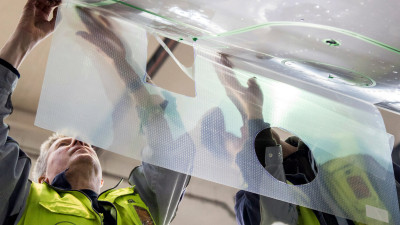Couldn't make ittoSB '15 San Diego?View this session'spresentationhereand catch up onthe week's
The Path to Net Positive:
Principles, Practical Models and Progress to Date
“This is about going beyond Net Zero to Net Positive,” Baue said. “Instead of trying to reduce our negative impact, our ‘footprint,’ let’s talk about what our ‘handprint’ will be.”
During the panel discussion and guided workshop, panelists and attendees explored the business benefits of operating in a way that helps make the world a better place, while realizing positive financial returns. These benefits included showing demonstrated leadership within an industry, creating organizational resilience, and attracting conscious consumers.
Case studies of Rio Tinto, Natura and Sustain Condoms were shared during the session to highlight how some companies are integrating net positivity into their business models and benefiting from it.
In addition, Uren reviewed the “12 principles of net positive” that have been developed with collaboration from a Net Positive Group members, which include BT, Capgemini, Coca-Cola Enterprises, The Crown Estate, IKEA Group, Kingfisher and SKF.
Attendees were also asked to ponder the true purpose of their business: “What are we here to do?” the panelists posed to the audience.
The connection between businesses and the larger ecosystem in which they operate was also explored during the session.
“How can you track change outside your business boundaries and how much of that change can you attribute to your business?” Thurm asked.
Many questions remain about how to reach full net positivity, yet what is clear is that purposeful companies and their leaders are striving to give back more than they take.







